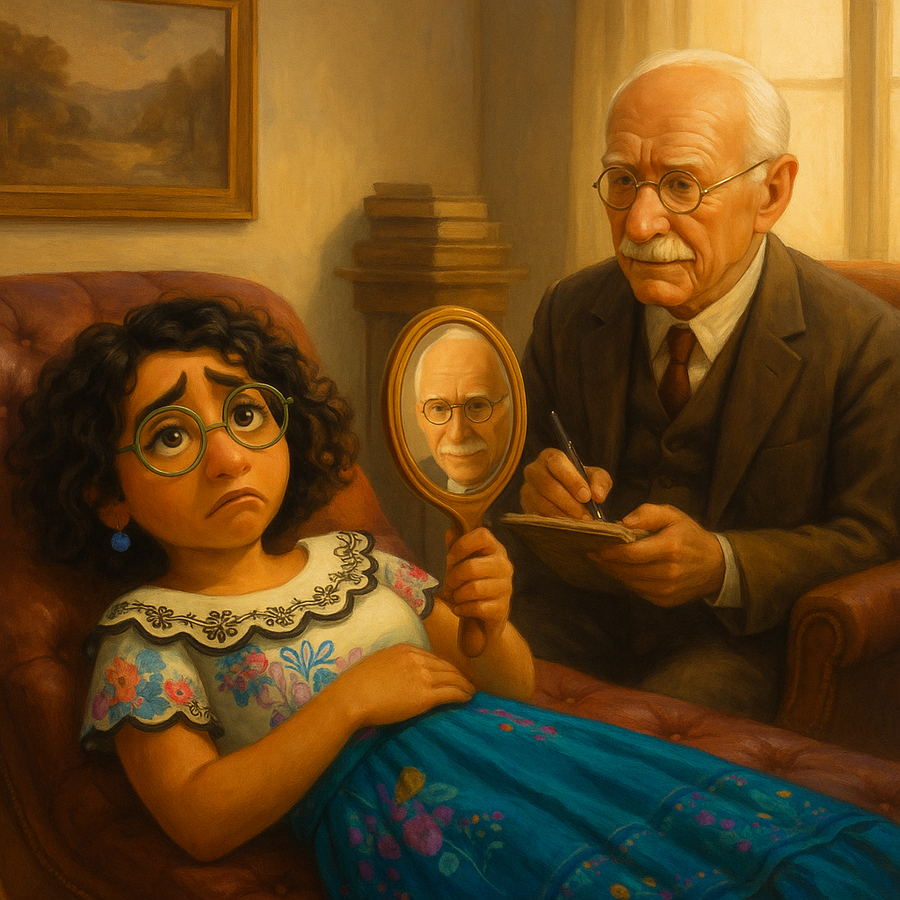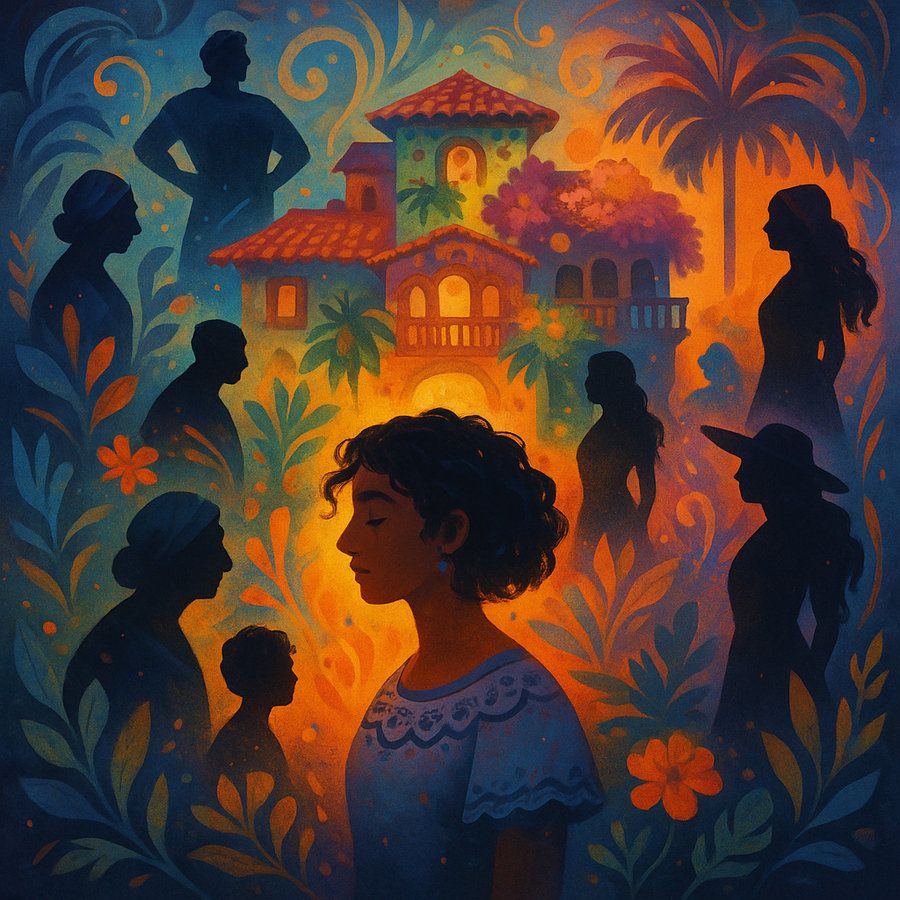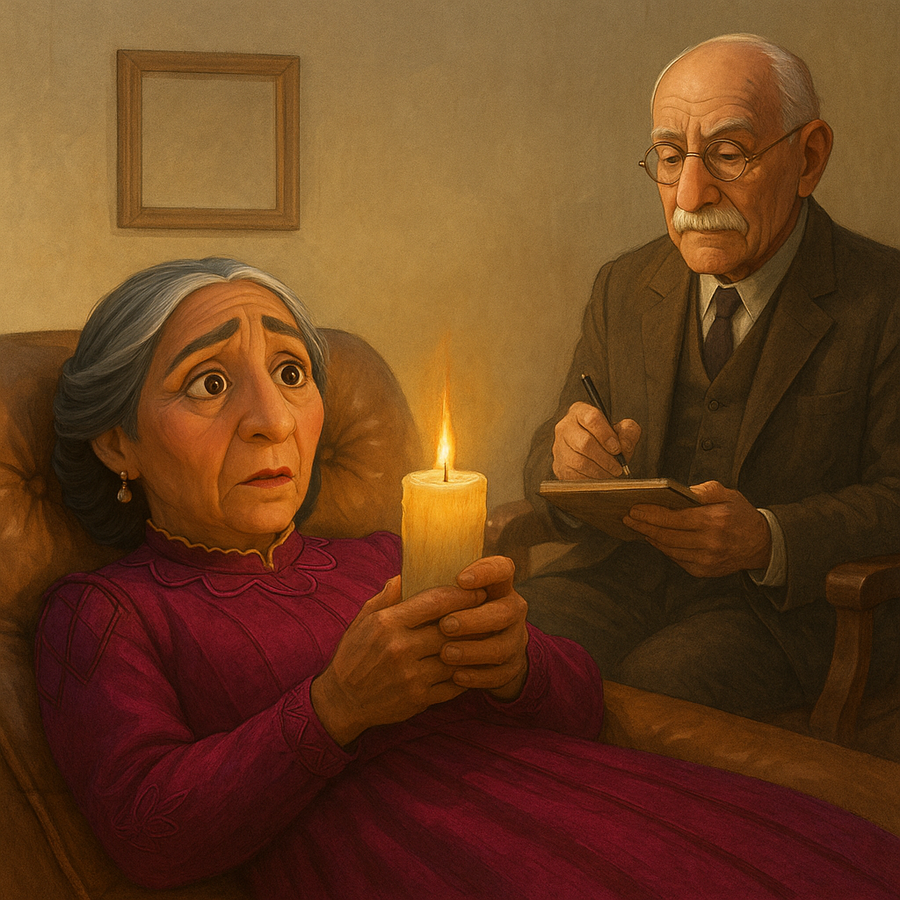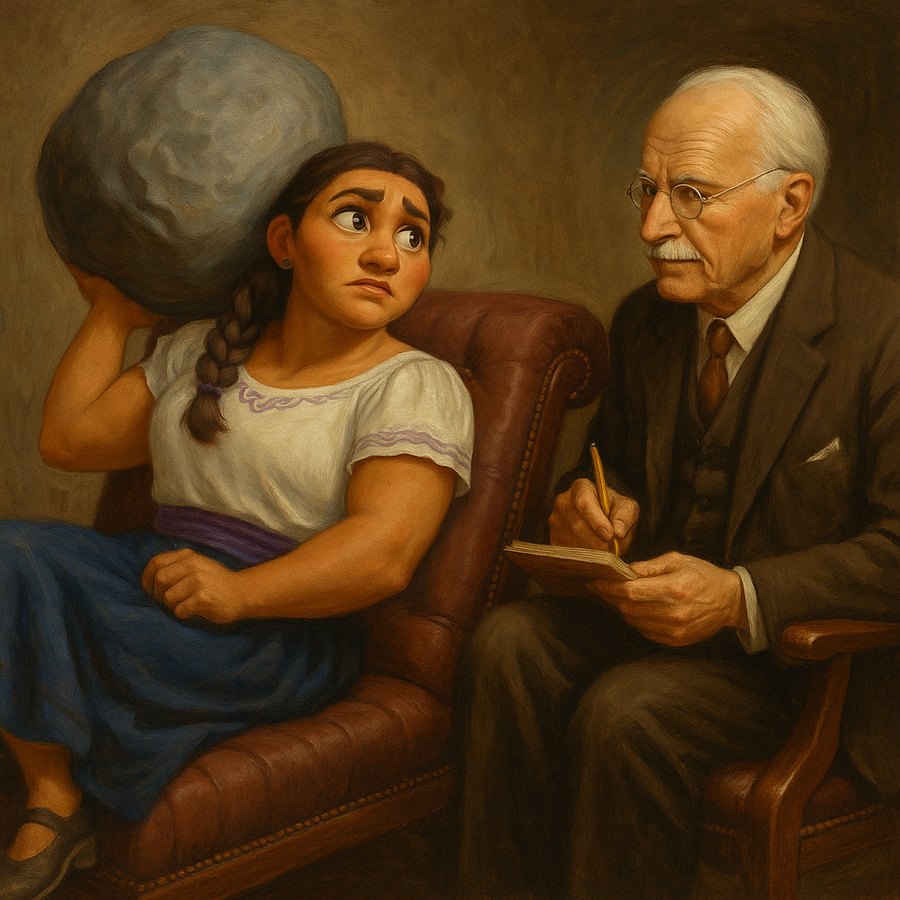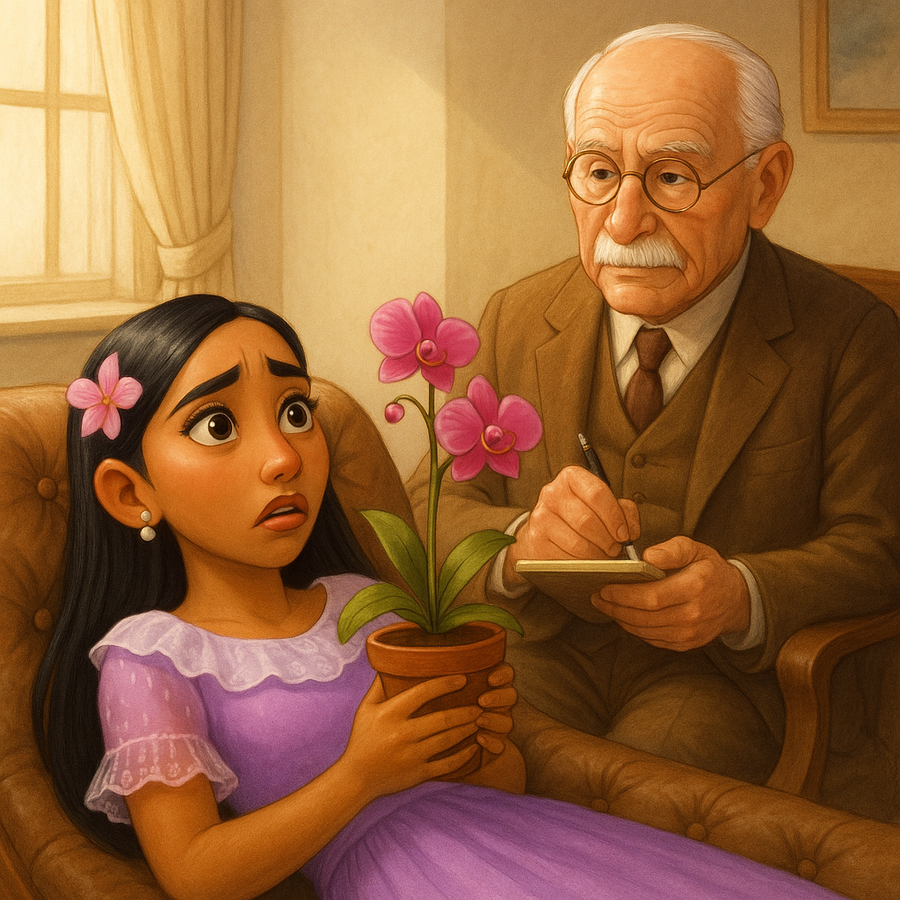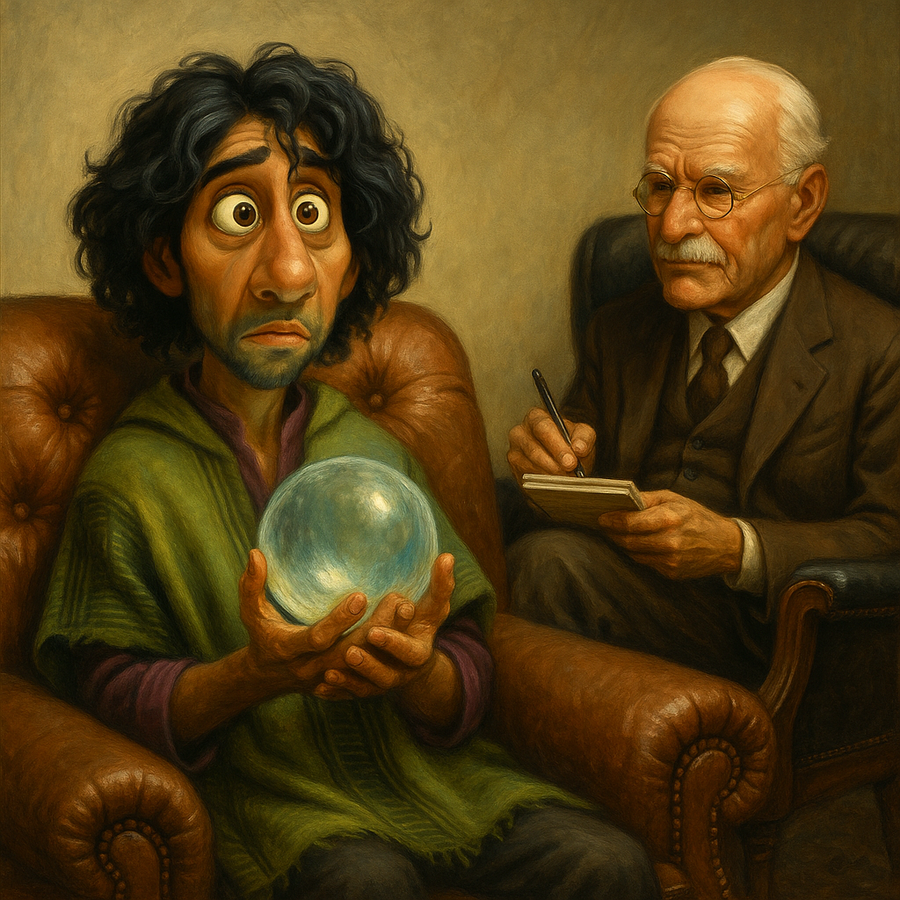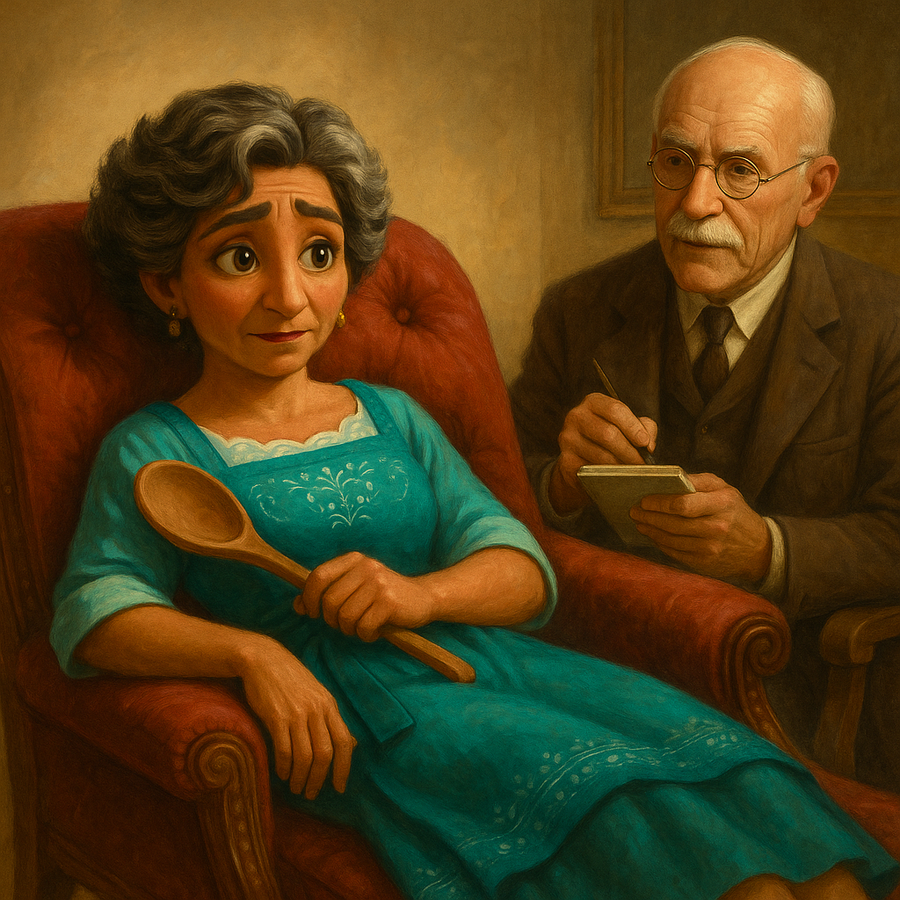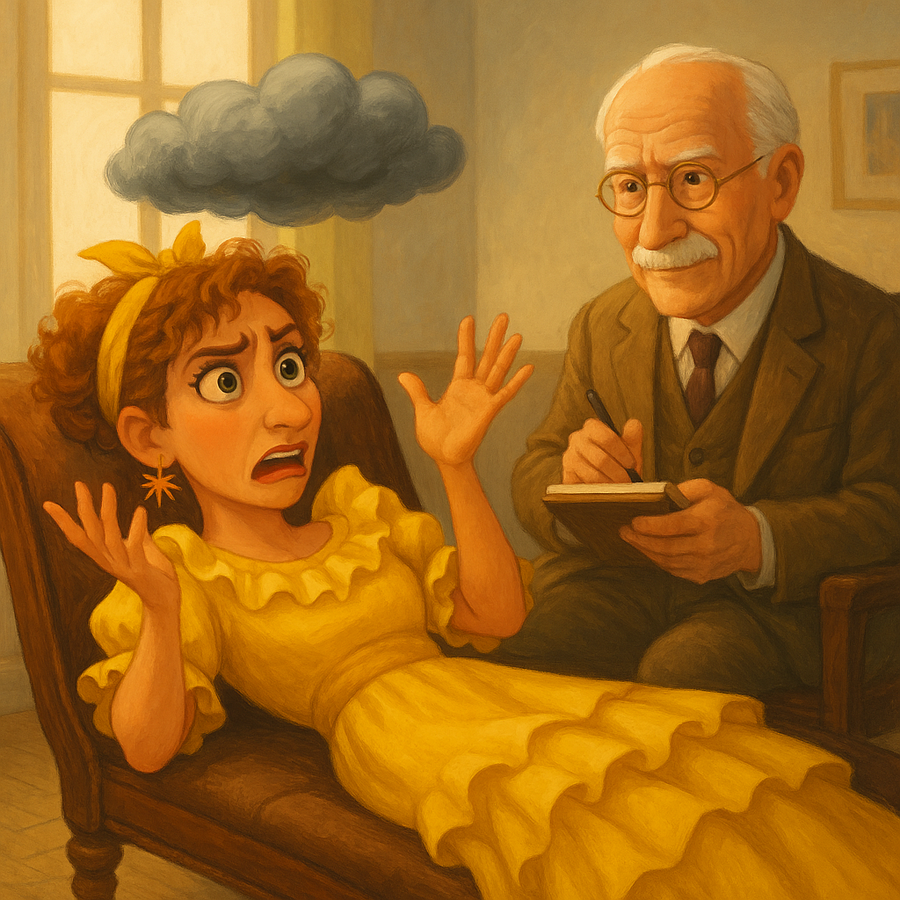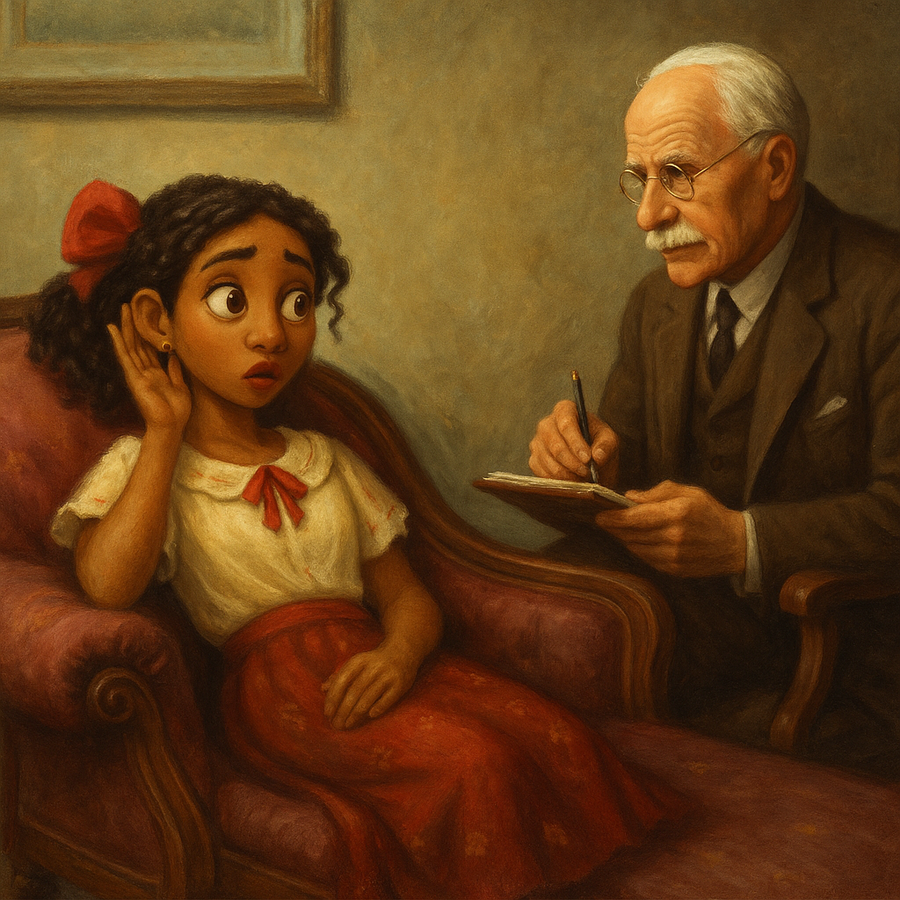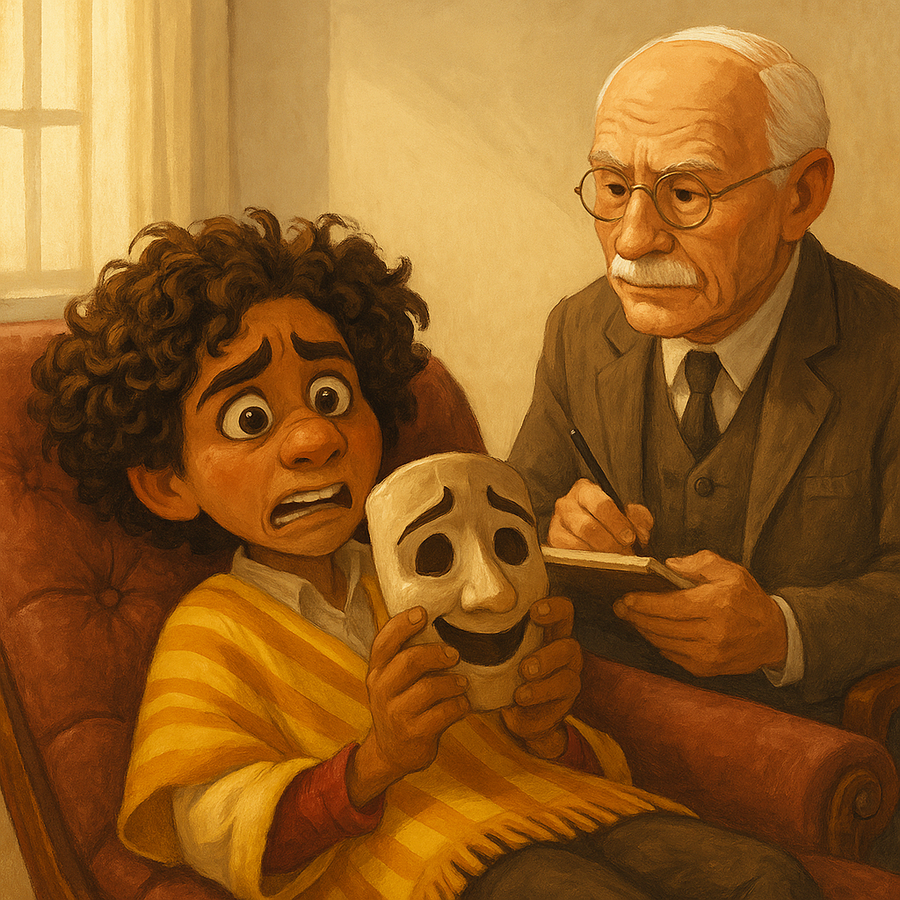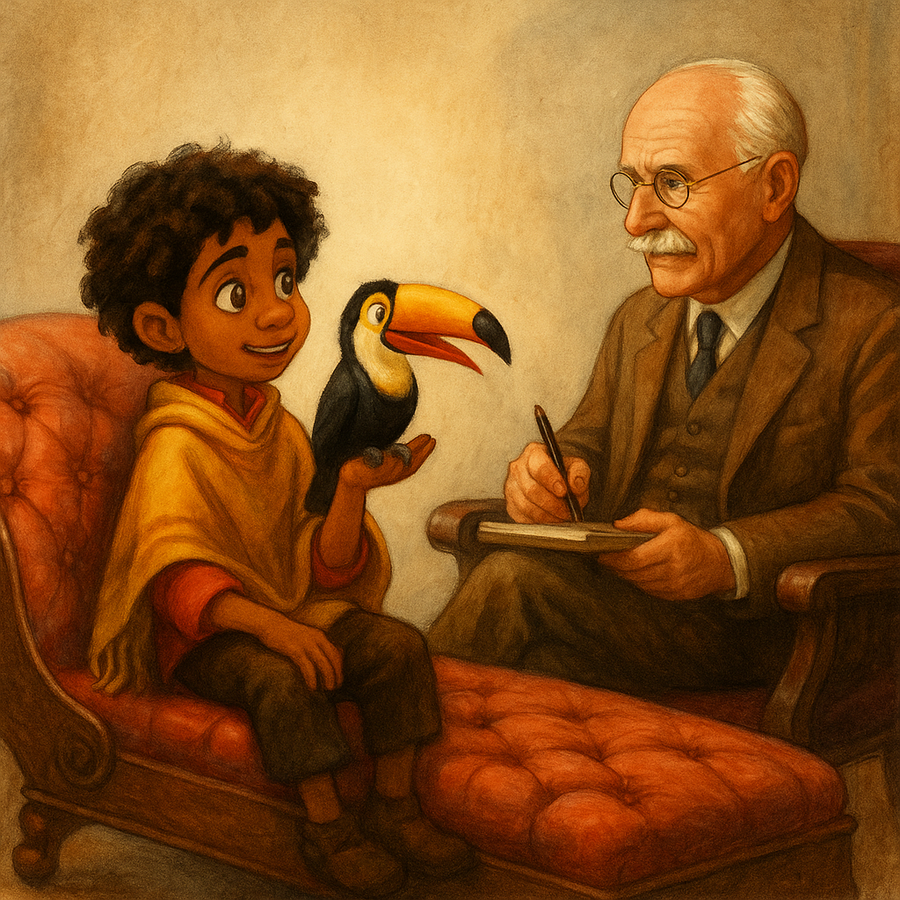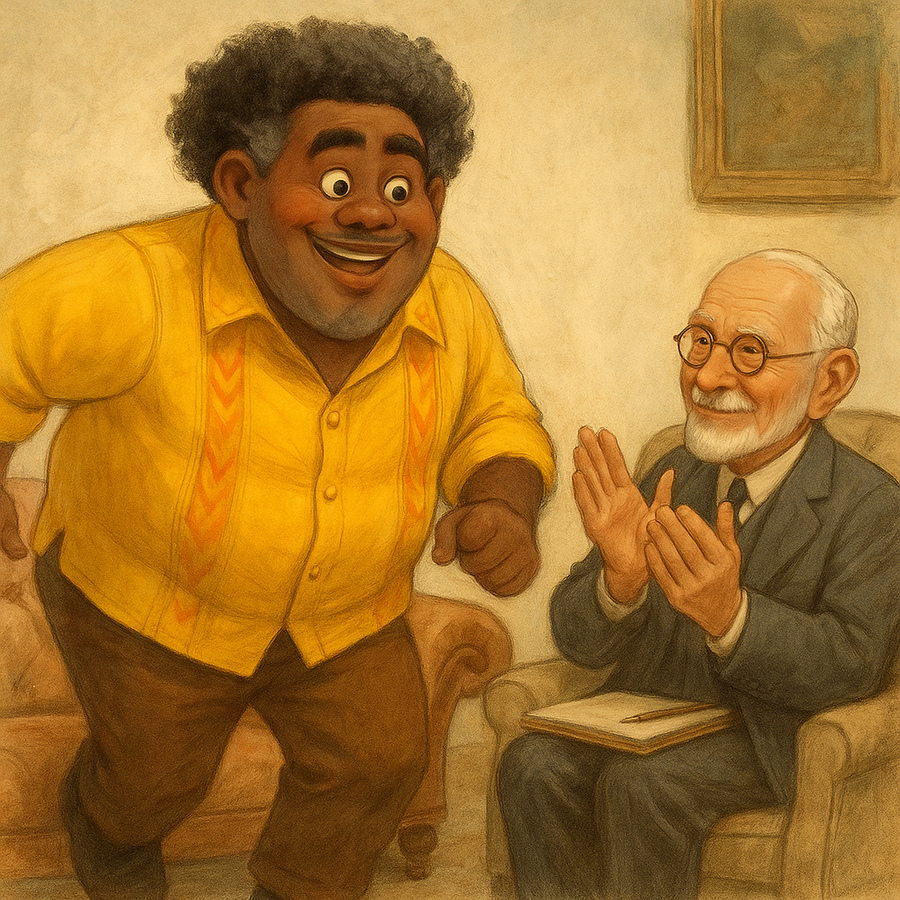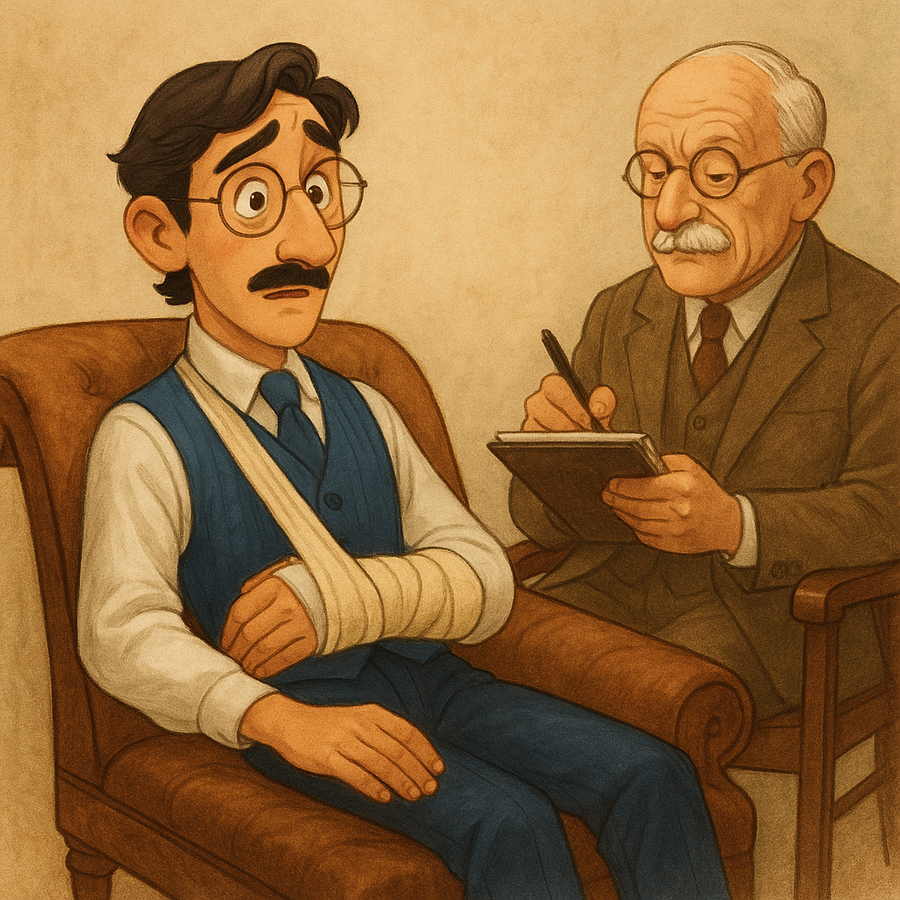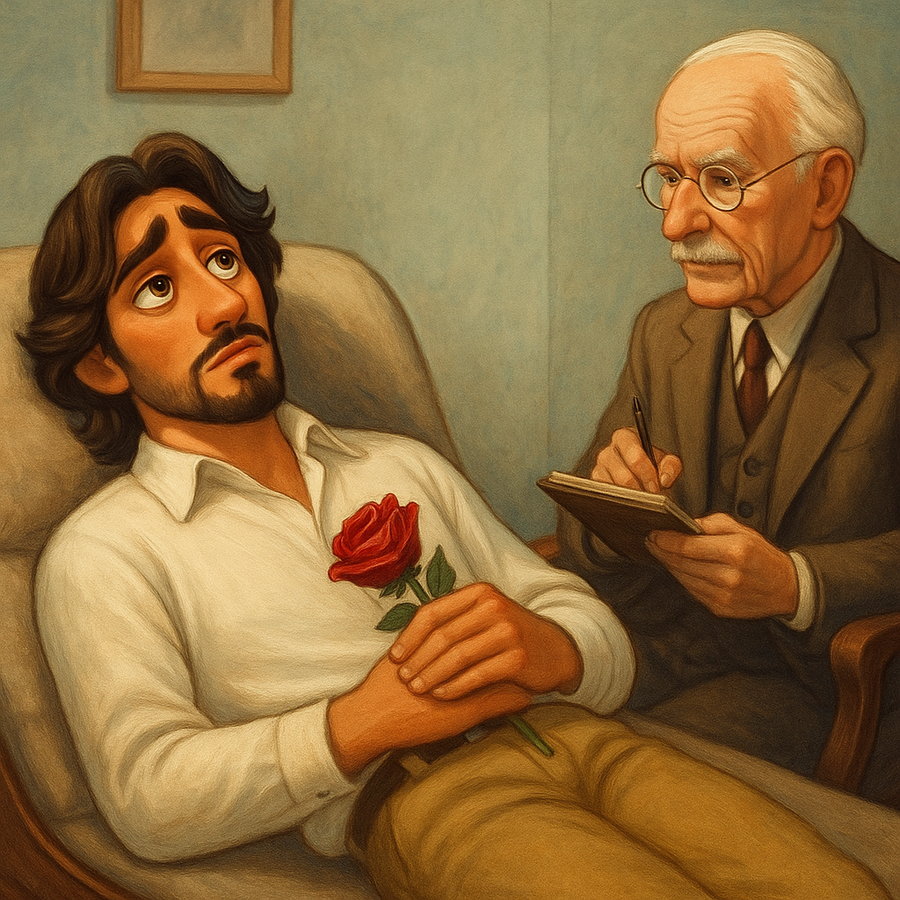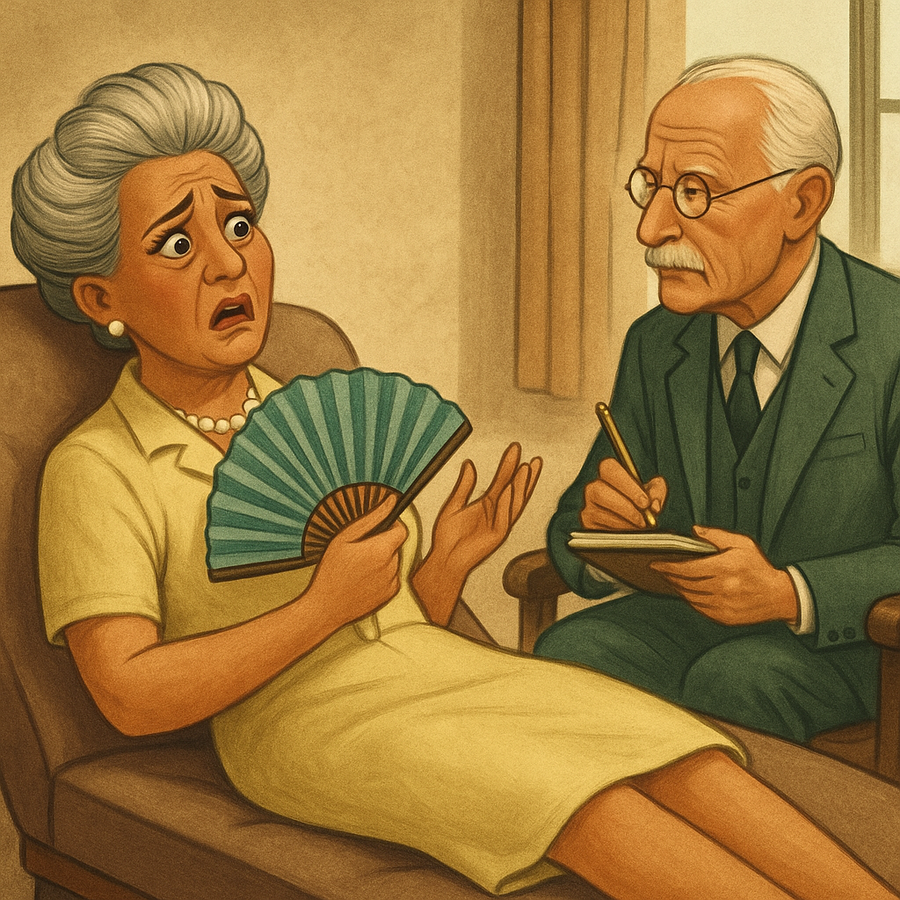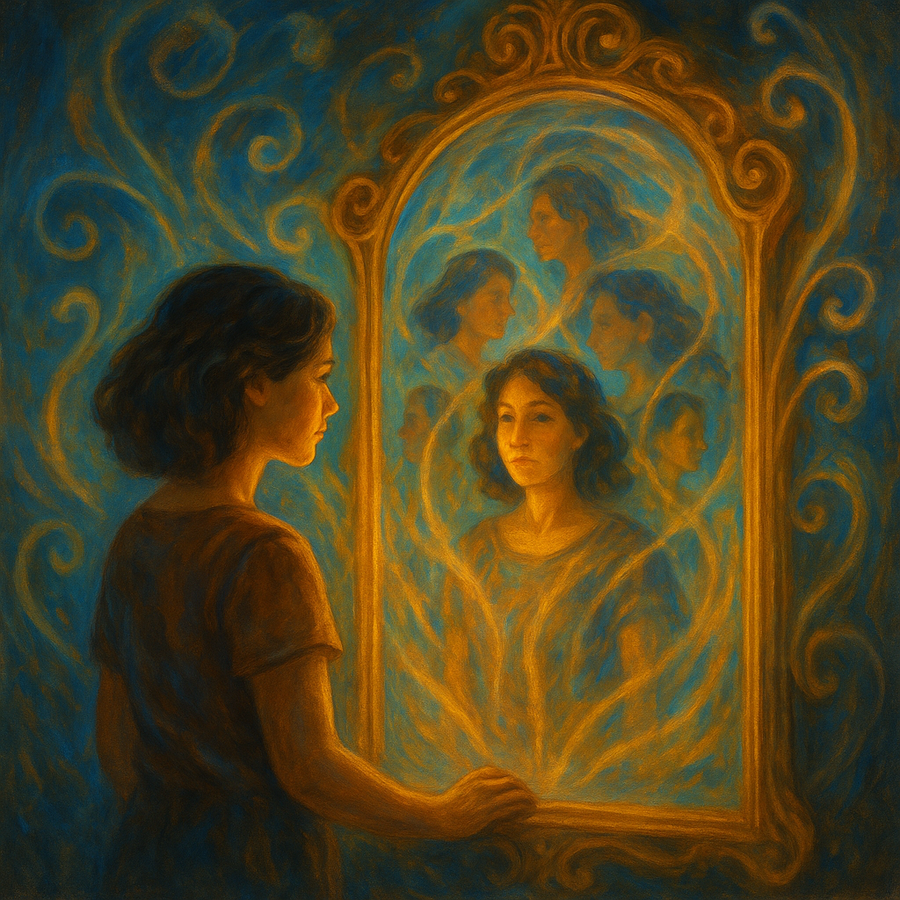Archetype: The Scapegoat → The Self / The Cycle-Breaker / The Wounded Healer
Mirabel stands at the emotional and narrative center of Encanto, not because she possesses a magical gift - but because she does not. Her lack of a supernatural ability becomes symbolic of the psychological experience of being the "identified patient" or the Scapegoat in family systems theory: the one who is blamed or deemed deficient when a system is unconsciously trying to suppress its dysfunction. Yet unlike many who internalize this label, Mirabel transforms it. Her persistence, insight, and capacity for empathy allow her to emerge as the integrative force of the family - what Jung would call The Self, the unifier of shadow and persona, conscious and unconscious.
From an Internal Family Systems (IFS) perspective, Mirabel demonstrates increasing access to Self-energy throughout the film: calm, curious, compassionate, and connected. She doesn't just attempt to fix the family or chase approval; she becomes the inner leader capable of understanding the needs and pain of each member. In her interactions with Luisa, Isabela, and even the ostracized Bruno, she mirrors the role of an inner part dialoguing with exiles, protectors, and burdened managers. This makes her not just a protagonist, but a living metaphor for internal integration.
In the framework of the 7 Inner Child Archetypes, Mirabel begins as The Rejected Child, carrying wounds of not-enoughness, invisibility, and perceived failure. But her journey is one of reclaiming voice and vision - ultimately stepping into the role of The Nurtured Inner Child, healed not through external magic, but through radical acceptance, courage, and relational repair.
Her relationships with each family member reflect a healing arc. She affirms Luisa’s worth beyond labor, challenges Isabela’s perfectionism, and helps Abuela face her own buried trauma. In this way, Mirabel is both healer and healed - The Wounded Healer, embodying the paradox that those without overt power often hold the key to transformation. Mirabel is the one left without a gift, which symbolically casts her as the Scapegoat - the identified “problem” in a dysfunctional system. Yet through her journey, she evolves into The Self in Jungian terms: the one who integrates and restores wholeness. Trauma-informed lenses would see her as the Cycle-Breaker, a common role for children who challenge intergenerational patterns.
